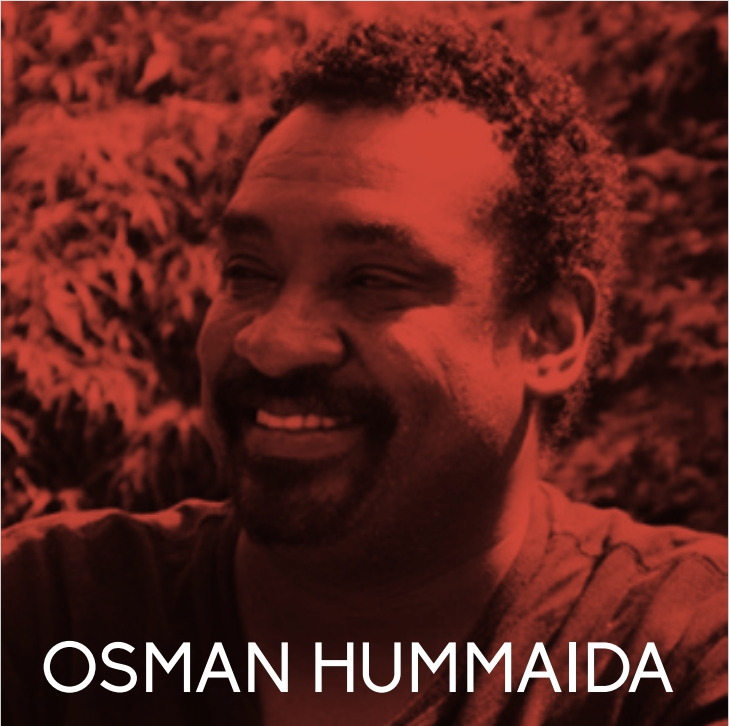19th April 2012 – Banjul, The Gambia
Madame Chairperson, honorable Commissioner Catherine Dupe Atoki; honorable Commissioners; State Delegates; honorable representatives of national human rights institutions and NGOs:
On behalf of the East and Horn of Africa Human Rights Defenders Network, I would like to thank the Commissioners for their commitment to promoting and protecting the rights contained in the Charter, and to take this opportunity to raise some of the key issues that have affected human rights defenders in the region and their ability to carry out their work over the past six months.
Unfortunately, this period has been marked by a continuation of negative practices impeding the work of human rights defenders. Many governments in the East and Horn of Africa continue to introduce new legislation that would place additional restrictions on civil society, as well as implementing existing restrictive laws. NGOs face administrative challenges, such as complicated and inconsistent registration processes. Human rights defenders may also face illegal interference with their work, such as the closing down of workshops they have organized, arrests for taking part in peaceful demonstrations or threats to remove their licenses. In Tanzania, sixteen prominent human rights defenders were arrested, charged with “unlawful protest”, and released on bail in Dar es Salaam on 9th February 2012, one day after a major demonstration to press the government to reconcile with health professionals over an ongoing strike in the country.
Human rights defenders continue to be the target of physical attacks and even murder. Impunity for such acts prevails. Ernest Manirumva, a Burundian anti-corruption campaigner, was murdered three years ago. After repeated delays and adjournments and concerns that investigations were not complete, the trial for his murder was concluded with a hearing that lasted only a few days. A verdict is now awaited.
On a positive note, we welcome the Rwandan Supreme Court’s recent decision to drop on appeal charges of genocide ideology and divisionism against journalists Agnès Uwimana Nkusi and Saïdati Mukabibi and to reduce their sentences. We are concerned, however, that other convictions including defamation for insulting the president were upheld. In light of international and regional standards protecting freedom of expression EHAHRD-Net supports calls for a presidential pardon.
Journalists play a vital role in promotion and protection of human rights on the continent. EHAHRD-Net is deeply concerned therefore about the range of challenges facing this group of human rights defenders. In the past five months, five journalists have been killed in targeted assassinations in Somalia. In Uganda, in March 2012 alone, at least six journalists were beaten or injured by police vehicles while covering the arrest, release on bail and transfer of opposition politician, Kizza Besigye.
In Ethiopia, anti-terrorism legislation has been instrumentalised in an attempt to silence dissenting voices. Several journalists are among 24 defendants on trial charged with supporting Ginbot Seven, a political party that the government has designated a terrorist group, including the blogger Eskinder Nega who has acknowledged having written about whether an Arab Spring style movement would be possible in Ethiopia and called for peaceful protests, but denied advocating violence. He had also written an article online shortly before his arrest criticising the government’s use of the anti-terrorism law to suppress dissent.
Three years after the Charities and Societies Proclamation came into force in Ethiopia, the devastating impact on the work of human rights groups is stark. Since 2009, at least 17 human rights organisations have changed their mandates and ceased to work on human rights issues. The appeal of the oldest Ethiopian human rights organisation, the Human Rights Council (HRCO), to remove the freeze on its bank accounts, is currently being considered at the Supreme Court. EHAHRD-Net calls on the Ethiopian government to amend the law to allow human rights NGOs to carry out their important work without unnecessary restrictions.
EHAHRD-Net has repeatedly raised the dire human rights situation of Eritrea. We acknowledge the Commission’s resolutions on Eritrea and decisions on the government officials and independent journalists held incommunicado since September 2001. We therefore urge the Commission to follow up and push for the implementation of their decisions on Eritrea and to support calls for the establishment of a UN special rapporteur. We request Eritrea to invite the special mechanisms of both the UN and ACHPR.
Sudan’s periodic report will be examined at this session. Severe human rights violations are a daily reality in Sudan. Freedom of expression and media freedoms are severely curtailed, and we are concerned by indications of a new strategy of post-printing censorship with newspapers confiscated and distribution prevented.Many human rights defenders and journalists have been arrested, tortured and prosecuted. Activists from Girifna have been particularly targeted.
In Kenya, the confirmation of charges against four of the six suspects in the post-election violence cases at the International Criminal Court on 23rd January 2012 heightened already existing fears of reprisals among possible witnesses, persons affiliated to witnesses and human rights defenders. With presidential elections scheduled for March 2013, we call on the Commission to remain vigilant as the campaign season approaches. We welcome the ratification of the African Charter on Democracy, Elections and Good Governance in February this year, call on all AU member states to ratify, and encourage the Commission to play a proactive role in its implementation given the key influence of elections on the human rights situation on the continent.
Finally, we call on the Commission to support measures to end all practices and legal restrictions, which threaten the fundamental rights, in particular the freedom of expression, and legitimate work of HRDs. I thank you for your kind attention.

